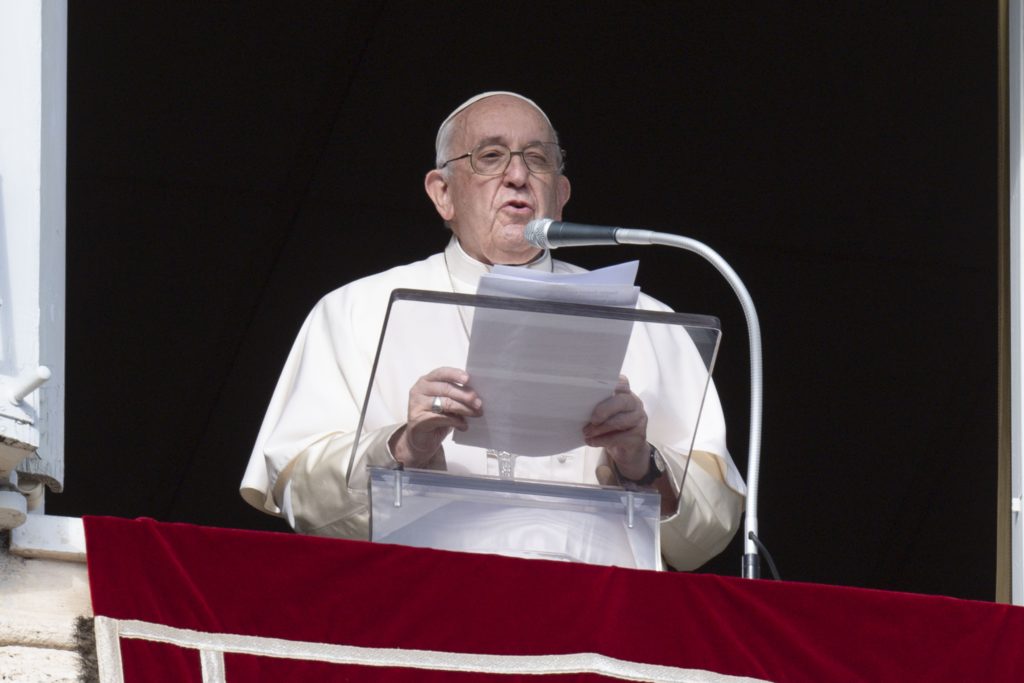Leading the recitation of the Angelus prayer, Pope Francis asked thousands of people joining him in St. Peter's Square to pray for peace in the Caucasus region, in Peru and, of course, in Ukraine.
As tensions between Armenia and Azerbaijan continued and the Lachin Corridor, a road linking Armenia and the disputed Nagorno-Karabakh enclave, remained closed, Pope Francis said Dec. 18 he was particularly worried "about the precarious humanitarian conditions of the population which risk further deterioration during the course of the winter season."
"I ask everyone involved to commit themselves to finding peaceful solutions for the good of the people," Pope Francis said.
The pope then turned to Peru, where violent protests have taken place since early December, when President Pedro Castillo announced he was closing the national Congress, and was impeached, arrested and replaced.
"Let us also pray for peace in Peru, that the violence in that country might cease and that the path of dialogue might be embarked upon to overcome the political and social crisis that is afflicting the population," the pope said.
And he asked Mary "to touch the hearts of those who can stop the war in Ukraine. Let us not forget the suffering of those people, especially of the babies, the elderly, the people who are sick. Let us pray. Let us pray."
In his main talk, Pope Francis drew attention to the day's Gospel, which recounted how St. Joseph found out Mary, his intended bride, was pregnant with Jesus, and how that turned his plans for their life upside down.
Joseph thought he had two choices: accuse Mary publicly or dismiss her quietly, the more merciful option and the one he chose, the pope said. But then, an angel spoke to him in a dream, explaining the pregnancy was the work of the Holy Spirit and that he should not be afraid to take her as his wife.
"Before God, who disrupts his plans and asks that he trust him, Joseph says 'yes,'" the pope said. "Joseph's courage is heroic and is exercised in silence -- his courage is to trust, he welcomes, he is willing, he asks for no further guarantees."
Anyone today who has plans and certainties that get overturned should look to St. Joseph's example, the pope said.
The best reaction is not to give in to anger or to withdraw, the pope said. "Instead, we need to attentively welcome surprises, the surprises in life, even crises."
Pope Francis cautioned people that "when we find ourselves in crisis, we should not make decisions quickly or instinctively," but rather gather the facts and sift through them like St. Joseph did and always be certain of God's mercy.
God is "an expert in transforming crises into dreams," Pope Francis said. And God's dreams are "infinitely grander and more beautiful than ours!"

